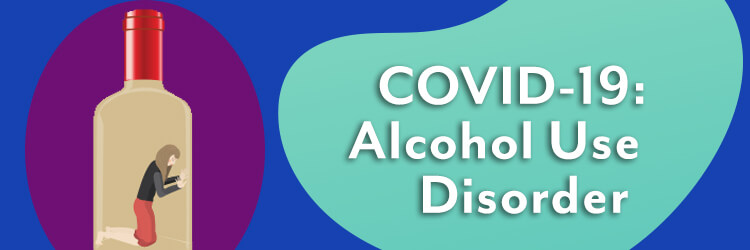[vc_row][vc_column][vc_column_text]In March, alcohol sales rose 55% compared to the same time last year. When establishments started closing and people realized they might be home a while, one study found that 22% of people reported stockpiling alcohol over groceries.
Since the pandemic, calls to the TruHealing Centers contact center about alcohol have increased by 20%.
While people deal with stress, lose their jobs or loved ones, and contend with isolation, alcohol is ever-present in advertisements and social media feeds. Restaurants—many of whom lost significant business switching entirely to takeout—are offering alcohol delivery with a meal to boost sales. This is all a perfect storm for rising rates of Alcohol Use Disorder.
Crises are hard on mental health. About 29% of people who responded to a survey about being quarantined from SARS developed PTSD. 31.2% had symptoms of Depression. In a study of survivors of the 2004 Indian Ocean earthquake and tsunami, 11.3% had PTSD within six years.
When mental health suffers, substance use tends to increase. One study found a 25% increase in alcohol use among New Yorkers living close to the 9/11 attacks. Another found that 15% of Oklahoma City bombing survivors used alcohol to cope with their trauma.
If anything, people should be using less alcohol while COVID-19 is still a threat. Alcohol lowers immunity, making it harder for the body to fight infections. Heavy alcohol use negatively impacts nearly every system in the body. It can cause or exacerbate various chronic illnesses, putting people at higher risk of complications from COVID-19. According to the World Health Organization, heavy alcohol use increases the risk of Acute Respiratory Distress Syndrome (ARDS), one of the most severe complications of COVID-19.
Luckily, it’s not all bleak. Many alcohol recovery support groups—like Alcoholics Anonymous—have moved to online platforms like Zoom. While we can’t meet in person, we can still connect to support and resources.
Many mental health professionals are providing teletherapy. Various meditation apps are offering free or reduced price options throughout the crisis—we compiled a list here. Anecdotally, it seems like individual people are going out of their way to check in on each other.
These are just some examples of how people in the recovery and mental health community are coming together to make sure people physically distancing don’t become emotionally isolated.
If you are struggling with alcohol use, there is hope. TruHealing Centers is open throughout the crisis, with hospital-grade sanitization of our facilities and telehealth options, so that you can feel safe in our care. Our recovery centers across the country provide high-quality treatment for substance use and co-occurring mental health disorders. Our staff—many of whom are in recovery themselves—will help you build the tools to thrive in long-term recovery. To find out more, call an admissions specialist at 410-593-0005.
[/vc_column_text][/vc_column][/vc_row]









